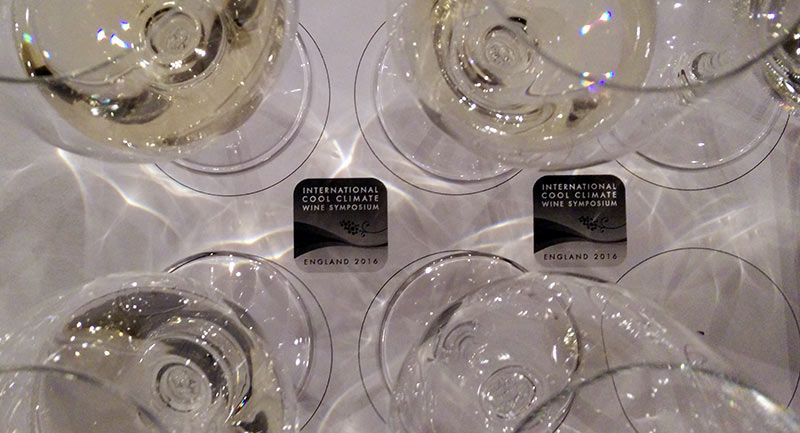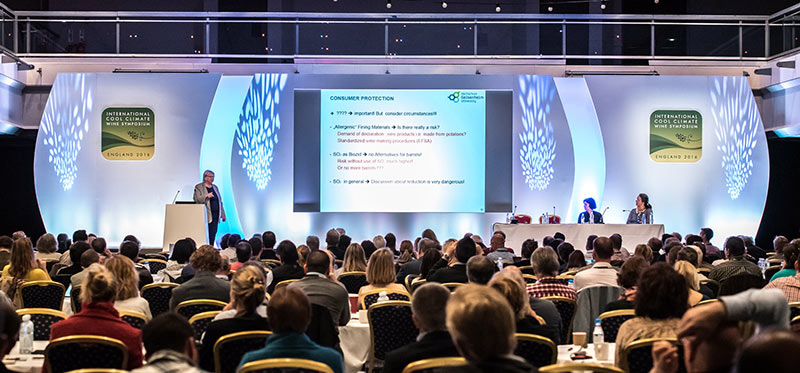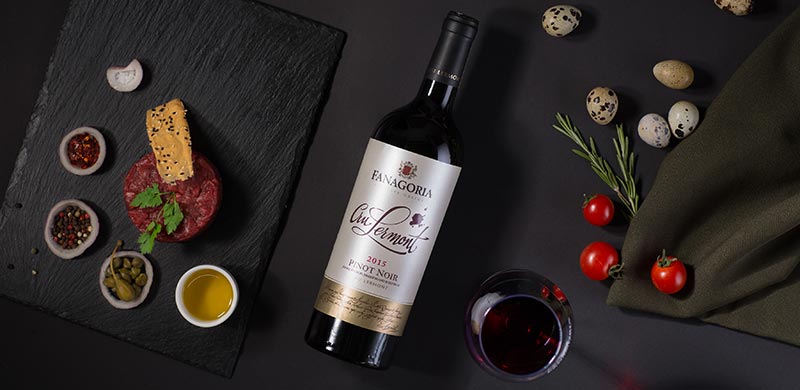Given that today is the so-called, “Brexit” vote, it’s probably only fitting to talk a bit more about the wines of England that I tasted during the ICCWS 2016 in Brighton. After all, if the UK votes to leave the EU they could very well be drinking a lot more of their own wines in due course.
In terms of English sparkling wines, there seems to be a rather bright future. What started out as a niche production from the likes of Breaky Bottom has grown in to a quite mature and in the case of Nyetimber, Wiston, and a few others, a very fine type of sparkling wine.
When it comes to the still wines however, it’s a very, very different beast and a great deal of work is being done in this segment. I attended a tasting that was led by well-known (at least in England and Europe) wine writer, Oz Clarke. Oz sang the praises of these English wines to great extent and by great, I think that Oz gave his life’s opus in talking them up. It was a passionate and refined speech, singing about the upward evolution of the wines from his homeland from a man who has dedicated his life to wine.
Unfortunately I felt that many of the wines didn’t live up to the praise. At my table there was an Australian winemaker from Tasmania and then a Finnish sommelier who had their own ideas when it came to the details of the wines but one of the main things we agreed upon was that Bacchus was really not for us. Despite being a Silvaner/Riesling cross with Müller-Thurgau, the final wine seems to be summed up as: if you like Sauvignon Blanc from Marlborough, then this grape will be your bicycle. If you like Sauvignon Blanc from Sancerre, then this isn’t for you. The styles can vary wildly on it, but a gooseberry quality seemed present in all the wines as well as the occasional massive, crunchy punch of acidity.
While Bacchus is a modern hybrid, it’s not surprising that of the grapes that showed promise where some of the classics and this will probably increase as temperatures continue to increase in the UK. Both the Gusbourne Pinor Noir 2014 and the Bolney Estate “Foxhole” Pinot 2014 were trembling with future potential. Aromatically, they’re quite excellent. What was lacking was perhaps a bit of structure in the body leaving them a bit flat in the mouth.
This seemed to be something of a problem in general as when each winemaker talked about their wines, they said that some grapes came in with sugar to reach a potential alcohol of 8% ABV but the final wine we tasted was at 12%. What is this magic? For those who aren’t familiar, it’s called, Chaptalization or basically adding in sugar to the wines at fermentation to increase the final alcohol. Small amounts can be undetectable but I’ve found that large amounts like what was seen in some of these wines can create a disconnected wine wherein everything seems correct on paper but in sensory analysis, it’s just “odd”.
Despite my mixed feelings about this tasting (and one would say rather pessimistic when compared to the sparkling tasting) I think that there is indeed a future for still wines in England. It’s going to take some time to get there but given what we’re seeing in terms of Climate Change and the various people from all over the world striving to get the ducks in a row with English viticulture, they’ll arrive there and will arrive there at some point very soon.




